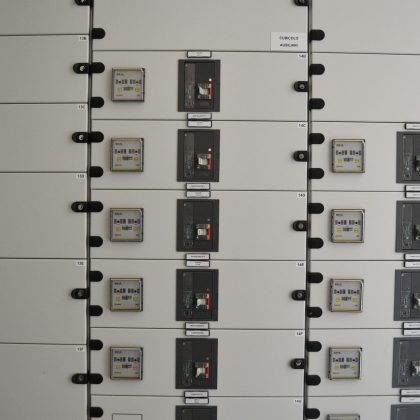The Benefits of Implementing a Scheduled Maintenance Program for Electrical Cabins
In today’s fast-paced and technology-driven world, electrical systems play a crucial role in ensuring the seamless operation of various industries. Electrical cabins, which house essential electrical equipment, are integral to power distribution and management. To maintain efficiency and prevent unexpected failures, implementing a scheduled maintenance program for these cabins is vital. One of the primary benefits of a scheduled maintenance program is the proactive identification of potential issues before they escalate into significant problems. Regular inspections allow technicians to evaluate the condition of equipment, identify wear and tear, and replace aging components. This proactive approach not only minimizes downtime but also enhances the reliability of electrical systems. By preventing unexpected failures, businesses can avoid costly emergency repairs and lost productivity, thereby improving their overall operational efficiency.

Another advantage is the extension of the lifespan of electrical equipment. Just as vehicles require regular servicing to ensure optimal performance, electrical cabins need routine maintenance to function effectively. Scheduled maintenance can include cleaning, testing, and recalibrating equipment, which helps in reducing the wear that leads to failures. By investing in regular upkeep, organizations can extend the lifespan of their electrical infrastructure, delaying the need for costly replacements and saving on capital expenditures. Moreover, scheduled maintenance programs contribute significantly to safety. Electrical cabins house high-voltage equipment, and even minor malfunctions can lead to dangerous situations, including electrical fires or equipment failures. Regular maintenance ensures that all safety protocols are followed and that safety devices, such as circuit breakers and fuses, are functioning correctly. This focus on safety not only protects employees but also safeguards the organization from potential liabilities arising from workplace accidents.
Additionally, maintaining a schedule promotes compliance with industry regulations and standards. Many industries have strict guidelines regarding the maintenance and operation of electrical systems. A structured maintenance program ensures that organizations meet these requirements, reducing the risk of legal issues or fines. Compliance also enhances the organization’s reputation, showcasing a commitment to operational excellence and safety. Finally, prefabbricati a catania a scheduled maintenance program can lead to improved energy efficiency. Regularly serviced equipment runs more efficiently, which can lead to lower energy costs. Efficient operations contribute to sustainability efforts by reducing the overall carbon footprint of the organization. Implementing a scheduled maintenance program for electrical cabins is not merely an operational choice; it is a strategic necessity. By prioritizing proactive maintenance, organizations can enhance reliability, extend equipment lifespan, improve safety, ensure compliance, and achieve energy efficiency. As the demand for uninterrupted power continues to grow, future-proofing electrical systems through scheduled maintenance will be crucial for sustainable success.